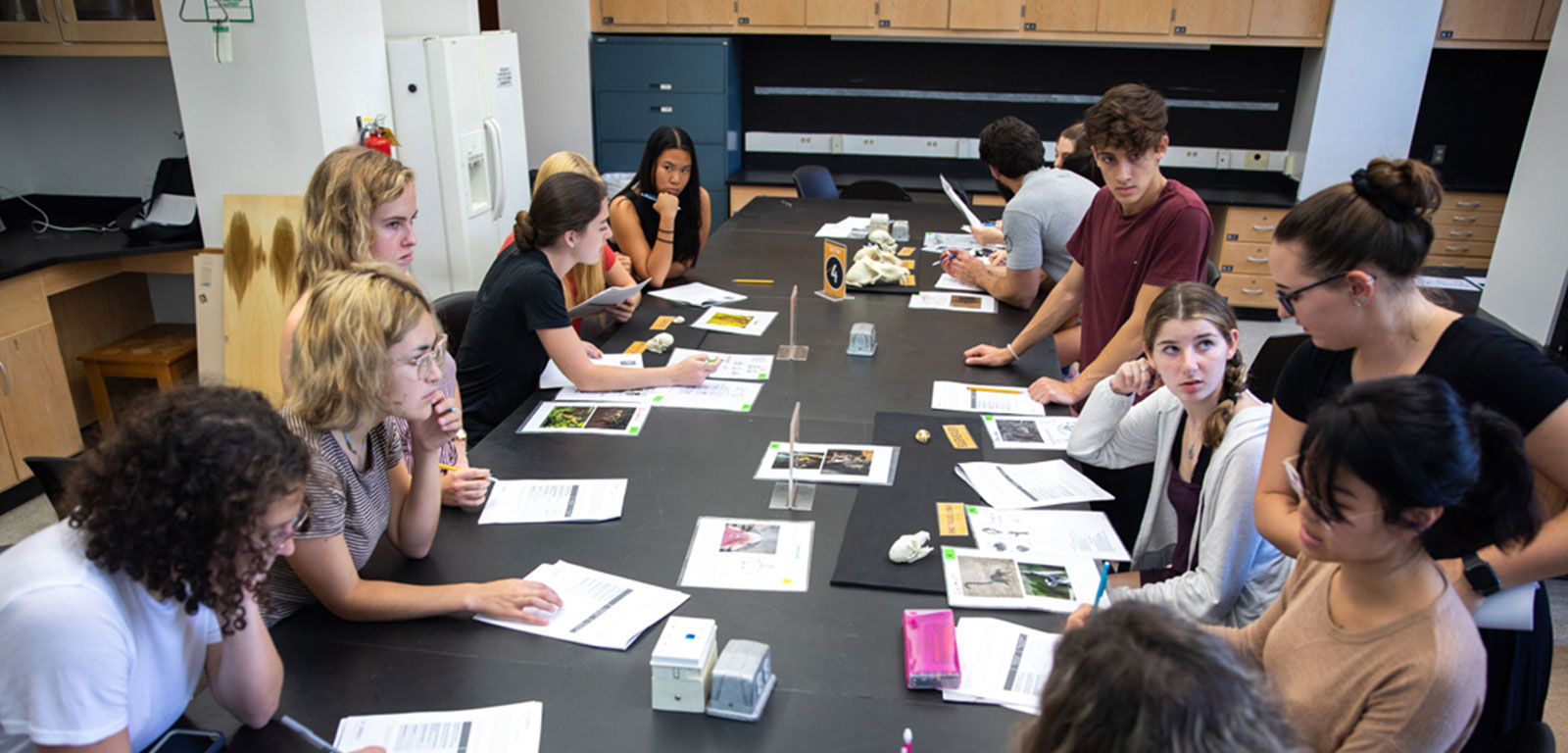

* Books, Transportation, Other costs
English requirements
Our program allows students to directly engage with contemporary anthropological topics and applied research. Core courses added over the past three years include Visual Anthropology, Medical Anthropology, Cultural Ecology, Climate and Society, Applied Anthropology, and Prisons, Punishment and Control. Our department focuses on modern issues of inequality, environmental and social justice, cultural heritage ownership, and activism. Geographic areas of focus include the Chesapeake Bay Region, Caribbean, Central and South America, Southeastern United States, and Southwestern United States.
We also emphasize learning by doing and offer many options for experiential learning. Our new course with the national Inside-Out program engages students in collaborative learning with incarcerated women in Delaware around issues of race, gender, and citizenship. With Digital Scholarship in Museum Partnerships (DSMP), students in the Museum Studies course collaborate with local communities to curate and conserve cultural materials and oral histories while developing online virtual reality (VR) exhibits.
Students who participate in our faculty-led trips study the interrelationship between culture and environment in the Southwestern United States, the intersection of music and culture in Cuba, and international development in Tanzania. There are many opportunities for studying abroad or participating in a departmental archaeology field school. Additionally, anthropology students and faculty participate in the interdisciplinary Chesapeake Semester and participate in hands-on internships at the Geographic Information Systems Lab, the Eastern Shore Food Lab and the CES Public Archaeology Lab.
More info: Click here

Trained in data collection and analysis, critical thinking, persuasive writing, and professional presentation, anthropology graduates find employment opportunities in business, national and international government agencies, NGOs, museums, and academia.
An anthropology degree provides students with the knowledge to understand the complexities of human behavior in the past and present and the practical skills to conduct rigorous research into the environmental and social forces that influence human cultural development. Students are also equipped with multiple perspectives for solving theoretical and practical issues within the subfields of sociocultural anthropology, archaeology, linguistics, and biological anthropology.
Recent graduates from our program have continued postgraduate study of anthropology and have found careers in geospatial intelligence, foreign service, sociocultural data analysis, international health and medicine, cultural tourism, grant writing, political analysis, international education, law, social justice, journalism, and environmental advocacy.

Health Insurance - USD $1617 per year